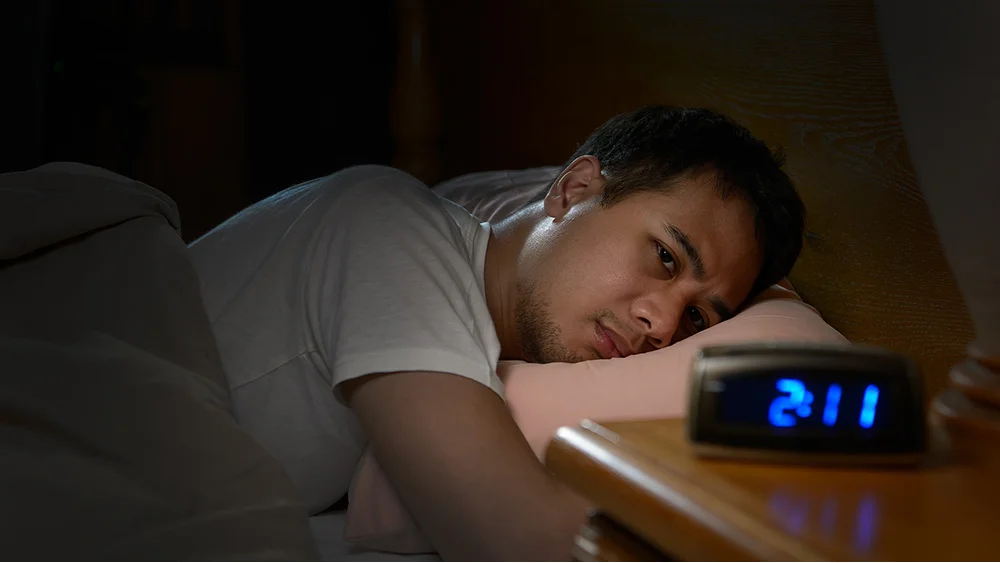
Prioritizing our sleep can make a world of a difference when it comes to our energy levels, mood, and stress management. With the growing recognition that improved sleep can be a life-changing catalyst, an increasing number of individuals are now contemplating how to enhance their sleep quality, especially by using the Samsung Health app in their pursuit of restful nights.
With this app, Samsung has recorded that there has recently been a notable increase in people who are tracking their sleep by 182 percent. (1)
In order to further investigate if people’s sleep health is actually improving with the help of sleep trackers, Samsung conducted some research by analyzing 719 million nights of sleep patterns among app users across the globe. After looking further into this study, all we have to say is that there are some major areas of improvement in terms of sleep quality among Samsung’s users.
To begin, it’s evident that users of the app are falling significantly short of the National Sleep Foundation recommended 7 to 9 hours of nightly sleep. Instead, the global average sleep duration stands at a mere 6 hours and 59 minutes.
Another notable result from the study was the amount of times people wake up in the middle of the night which leads sleep efficiency to decline over time. After the study, the findings suggested that women experienced more declines in sleep deficiency compared to men. Older individuals, specifically within their 70s, experienced a decline in their sleep that was twice as much compared to when they were in their 20s.
When compared to other regions, North America stands out as an area that could benefit from further efforts to enhance sleep quality. It experienced the most significant decline in sleep efficiency, in contrast to Asia. Furthermore, the study revealed a prevailing issue of sleep debt, with a profound impact on younger individuals, particularly those in their 20s.
To make this study a little more interesting and clearer to readers, Samsung decided to put various types of sleepers into categories. These categories consisted of eight Sleep Animals, each one having different sleep characteristics based on wake time, sleep duration, and consistency.
The “Cautious Dear” sleeping animal was most common among older people as the people within this category had a shorter sleep duration and woke up more often in the middle of the night. On the other hand, people in their 20s mostly fell under the sleep animal group of “Sensitive Hedgehogs” which held the characteristics of having a consistent sleep time, but an inconsistent sleep consistency and awake time.
So what comes next to improve this ongoing cycle of bad sleep habits not only in America but across the world? That is why we brought in an expert to give some thoughts on this study and give some tips on how to work towards better sleep.
How Can We Begin To Sleep Well? An Expert Weighs In
This study by Samsung was interesting and eye-opening into how we need to continue to prioritize our sleep, but we wanted to get an expert into the mix to hear their thoughts and suggestions for the route to better sleep.
We decided to speak with Dr. Jacqueline Geer, MD, who is an Instructor of Medicine at Yale School of Medicine. She outlined the contributing factors behind the widespread sleep challenges faced by younger individuals worldwide and shed light on why Americans, in particular, grapple the most with this issue. (2)
First off, Geer believes that younger individuals, specifically in their 20s, are experiencing sleep debt from a multitude of factors such as having a constant exposure to social media and overstimulation from their phones.
“Given the easy access to emails, texts, and social media, this age group finds it challenging to disconnect (physically and metaphorically),” she told Sleepopolis. “This can lead to ‘revenge procrastination’ when the day is done, but access to digital devices is readily available.”
It was also highlighted in the study that Americans have the most inconsistent and least efficient sleep. We wanted to look further into the cause of this, and Geer gave us some of her own insights into what the cause of this may be.
“The finding that North America has the lowest sleep quality compared to other regions is likely due to a number of causes, including the presence of sleep disorders, poor diet and obesity, use of alcohol before bed, high rates of stress, and workplace demands,” she said.
In light of these ongoing sleep-related concerns, she offered recommendations for enhancing sleep quality beyond simply monitoring one’s sleep, emphasizing the importance of making minor adjustments rather than drastic changes.
She said consistency is the key and that small changes will make the largest change gradually over time.
“Finding a consistent way to wind down before bed, getting in bed when sleepy, and having a consistent wake up time each day are all important goals,” she said.
With this enlightening study and the suggestions made by Hanke, it’s important to begin to take the steps needed to better sleep whether that means changing your routine or schedule slightly. The potential benefits far outweigh the effort.
Sources
1. Have we been sleeping well? Samsung answers the age-old question with the Global Sleep Health Study. Samsung Global Newsroom. October 26, 2024. Accessed October 31, 2024. https://news.samsung.com/global/have-we-been-sleeping-well-samsung-answers-the-age-old-question-with-the-global-sleep-health-study.
2. Jacqueline Geer, MD, MHS, FCCP. Yale School of Medicine. Accessed October 31, 2024. https://medicine.yale.edu/profile/jacqueline-geer/.
Geer, Jacqueline. Personal Interview. October 31, 2024.


























